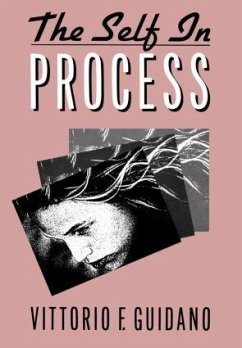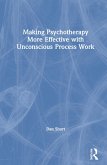In this profound work, Vittorio Guidano expands upon his earlier seminal contributions on the application of cognitive and developmental principles to individuals struggling with various forms of psycho-pathology. Here, he fully develops the idea that individuals' experience, both positive and negative, are powerfully influenced by their personal "psychological organizations." Focusing primarily on the eating disorders, the phobias (with agoraphobia as the prototype) obsessive-compulsive patterns, and depression, Guidano illustrates how early developmental experiences and ongoing psychological processes may collude to perpetuate dysfunctional patterns and personal distress. The central and perhaps most exciting thesis in this new expression of Guidano's thinking is that the deep structure' or core organizing processes that constrain human psychological experience may be at the heart of successful intervention as well as the classical problems of resistance, relapse, and refractory behaviors. Guidano's contention is at once simple and powerful: those psychological processes involved in the development and maintenance of personal identity, or self' that should be the primary foci of research and intervention in psycho-logical disorders. The meaning of Guidano's perspective for clinical practice is perhaps best expressed in the author's own words: Knowing the basic elements of the personal cognitive organization that underlie the pattern of disturbed behavior and emotions, the therapist can behave, from the beginning, in such a way as to build a relationship as effective as possible for that particular client. In other words, the therapist should be able to establish arelationship that respects the client's personal identity and systemic coherence and that, at the same time, does not confirm the basic pathogenic assumptions. For example, in working with agoraphobics, the therapist has to respect their self-images centered on the need to be in co
Hinweis: Dieser Artikel kann nur an eine deutsche Lieferadresse ausgeliefert werden.
Hinweis: Dieser Artikel kann nur an eine deutsche Lieferadresse ausgeliefert werden.








